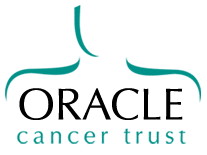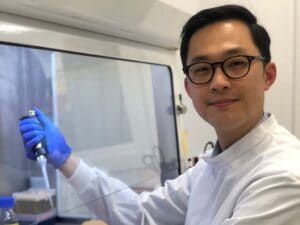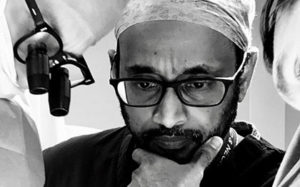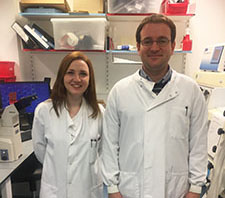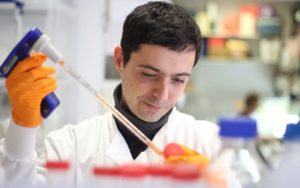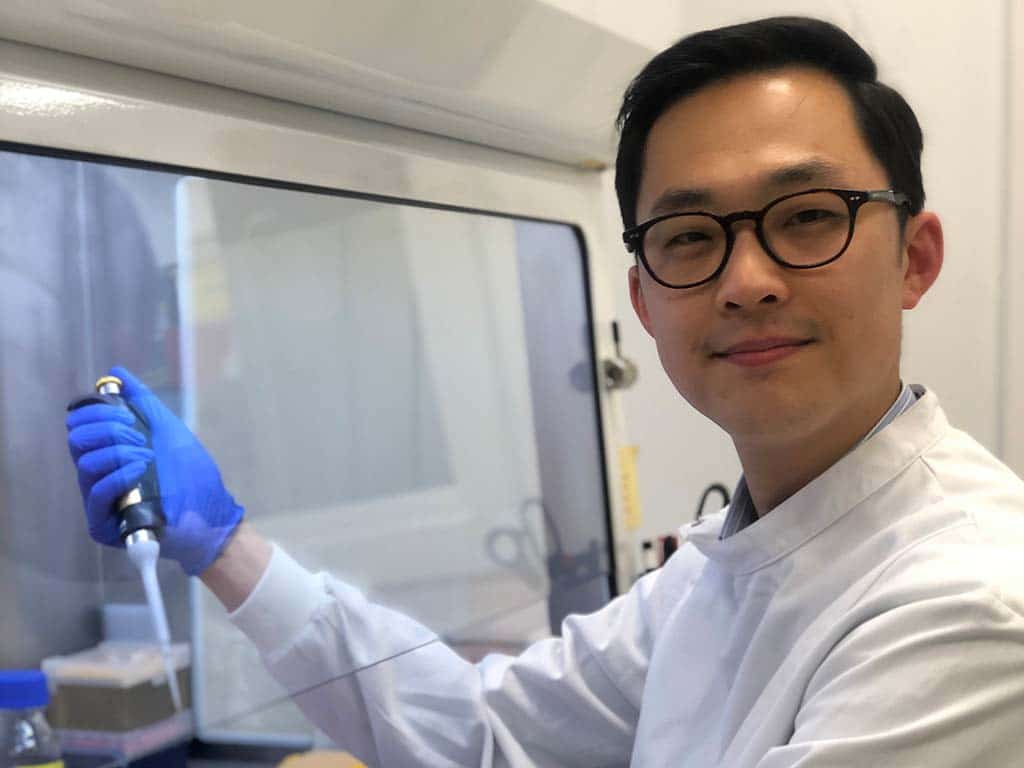
The Missing Cancer Patients Appeal Update
Oracle Cancer Trust funds research into head and neck cancer (HNC). Over the past 12 months our research teams have demonstrated huge resilience as they worked to keep the science going during restrictions. Our funding usually takes the form of multi-year grants and this outline includes examples of both project and PhD awards. They move us towards our mission to discover more effective, kinder treatments for people facing head and neck cancer. Our portfolio of 15 current studies works across three themes:
- Developing new treatments
- Better diagnosis
- Improving current treatments
Developing new treatments – an example
PhD Award, Daniel Lin, Newcastle University- £184,874 – 2020-22
Daniel Lin is exploring the power of biomarkers for HNC. These are biological molecules that can be measured as an indicator of normal biological processes, disease processes or a response to a therapeutic intervention.
IDO (indoleamine 2,3-diozygenase) is an important enzyme which allows tumours to ‘hide’ from the body’s immune system. We can measure IDO as a biomarker in a patient’s blood or at the tumour and this could be exploited to improve treatment outcomes. High levels of IDO have already been linked to worse outcomes in a number of cancers such as melanoma, ovarian, colorectal and lung cancer. Daniel will study baseline IDO activity in HNC patients and map this throughout treatment to establish whether IDO is a biomarker for HNC. It could support a more personalised therapeutic approach to improve patient outcomes.
His data will provide important preliminary information for future studies and hopefully enough evidence will be collected to support the design of a clinical trial. It could involve stratifying patients based on the IDO biomarker results to receive personalised therapy and the aim is to improve survival and the quality of life for patients with HNC.
Impact of COVID-19
Daniel’s work is well underway, however his supervisors suspect the project may take slightly longer than planned due to reduced patients in clinics. The extent of the delay is unclear but as clinics get back to usual patient numbers, it will become easier to assess.
Dr Daniel Lin
Better diagnosis
Project Award: Robotic Surgery and Robust Pathological Techniques - £117,991 - 2018-21
Sometimes in HNC, despite using all available diagnostic techniques, clinicians are unable to identify the origin of the disease. In this case the patient is diagnosed with cancer of unknown primary (CUP). By its very nature, CUP is not only a huge worry to the patient but also difficult for clinicians to decide how to treat, and management varies significantly throughout the UK.
Prof Vin Paleri and Dr John Hardman of The Royal Marsden Hospital are undertaking a multicentre study to evaluate the role of two recently developed techniques, one surgical, one pathological, in the diagnosis and treatment of patients with CUP (HPV positive squamous cell carcinoma neck metastases arising from undetectable primary sites).
Small tumours in the base of the tongue are often not picked up by conventional diagnostic techniques. Currently, random biopsies of this hard-to-reach area mean the detection rate is variable. Robotic tongue base mucosectomy (TBM) is a new state of the art procedure and has been proven to improve diagnosis rate. The precision surgery allows the removal of the entire area where primary cancer may preside, thereby increasing the chance of detection. Serial step sectioning techniques would be used then take very thin samples of the removed tissue.
Our ambition is that the combination of these two techniques will detect primary cancer in a larger number of patients. It can then enable targeted treatment and even the potential to completely remove the primary cancer in some patients, improving their outcomes.
Impact of COVID-19
The team had to pause their work from April to June 2020 while access to the labs was limited. We have agreed a no-cost two-month extension as a result.
Prof Vin Paleri
Improving current treatments
PhD Award: Leah Palmer, Blizard Institute, London £93,000 - 2018 – 2021
Leah Palmer is working under the supervision of Dr Adrian Biddle to investigate cancer stem cells in oral cancer. She is developing a panel of biomarkers to flag if cancer stem cells in a primary tumour that are likely to metastasise. Using 3D invasion models Leah will assess these cells in an environment that mimics the human body. The aim is to develop a test using these biomarkers to successfully differentiate metastatic from non-metastatic primary tumours.
This is important because where cancer metastases to the lymph nodes, overall survival is greatly reduced, and more aggressive treatment is needed. Its currently very difficult to predict which tumours are metastatic. By being able to use such a test in the future, aggressive treatment could be targeted to the highest risk patients. Importantly, unnecessary treatment can then be avoided for those who are low risk. This research is laying the groundwork for future opportunities to develop personalised prediction of therapeutic response and even more remarkably, identification of therapeutic targets to stop metastasis all together.
Impact of COVID-19
Leah worked remotely until June 2020 when limited access to the labs resumed with COVID-19 safe practices in place. As a result of the disruption for Leah and her supervisors, the study has been granted a no-cost five-month extension, however it is otherwise unaffected.
Leah Palmer and Dr Adrian Biddle
Project Grant: Dr Emmanuel Patin, Institute of Cancer Research, London
£178,644 - Jan 2021– 23
Radiotherapy is a key tool in the range of treatments for head and neck cancer. Its effectiveness could be improved and too often patients experience long-term severe side effects. In this research, under the supervision of Professor Kevin Harrington, Emmanuel aims to use drugs to make radiation more effective in killing cancer cells, and importantly to also to alert the immune system to their presence.
This study aims to test the impact of DNA damage response inhibitors in conjunction with radiotherapy. They also hope to increase the visibility of dying cancer cells to the immune system. They will do this by studying how adding so-called “radio-sensitising drugs” can enhance the ability of the immune system to “see” the tumour and attack it.
The goal is to make radiation work better against hard-to-treat head and neck cancers (e.g. HPV-negative tumours), but also to reduce the side effects of treatment by needing to use less radiation to control more sensitive cancers (e.g. HPV-positive tumours).
The results obtained will inform the design of future clinical trials of radiation, radio-sensitising drugs and immunotherapy – both here in the UK and through the wider global community.
Impact of COVID-19
The start of this study was delayed by several months due to COVID-19 so we were delighted when Emmanuel Patin was able to begin work in the New Year.
Dr Emmanuel Patin
Quality Assurance
Oracle’s pioneering research work, led by some of the world’s leading authorities on HNC has resulted in breakthroughs in delivering new surgical techniques, radiotherapy treatment, speech and language therapy, drug development and virus and immunotherapies. Oracle is AMRC accredited, demonstrating that our rigorous vetting procedure with independent, expert committees meets the gold standard in charity-funded medical research. All projects are reviewed annually with written and verbal progress updates provided to ensure that project goals are met according to Oracle’s stringent funding guidelines.
We only partner with institutions who have a demonstrable track record in cancer research. Currently they are: Oxford University, The Institute of Cancer Research, The Royal Marsden Hospital, Queen Mary’s University (Barts), Newcastle University, Brunel University and Derby University. Our top priority remains funding the excellent work in our current portfolio. However, if funding allows, we would like to add new work and institutions to this distinguished list in 2021.
How could you support the Missing Cancer Patients Appeal?
A gift of any size will help ensure we can continue to deliver world class science that gives hope to head and neck cancer patients into the future. And it all adds up. For example, if we raise:
£4,800 – Oracle could fund a year of PhD research fees to help develop new treatments.
£1,000 - Oracle could fund 6 weeks of pathologist time to develop robotic surgery.
£ 300 - Oracle could fund a week of laboratory consumables to improve radiotherapy.
A tax efficient gift can go even further too:
| Donation Amount | Gift Aid | Final value to charity | Higher rate tax payers reclaim* | Actual cost to donor |
| £4,800 | £1,200 | £6,000 | £1,200 | £3,600 |
| £1,000 | £250 | £1,250 | £250 | £750 |
| £500 | £125 | £625 | £125 | £375 |
| £300 | £75 | £375 | £75 | £225 |
* If eligible
Thank You
On behalf of everyone involved with Oracle, thank you for all your support. If you’d like to make a donation follow this link, or if you have any questions about the work outlined here or the Missing Cancer Patients Appeal, please do not hesitate to contact Teresa Forgione, head of fundraising on 0203 875 8991 or email Teresa. We’d be delighted to hear from you.
